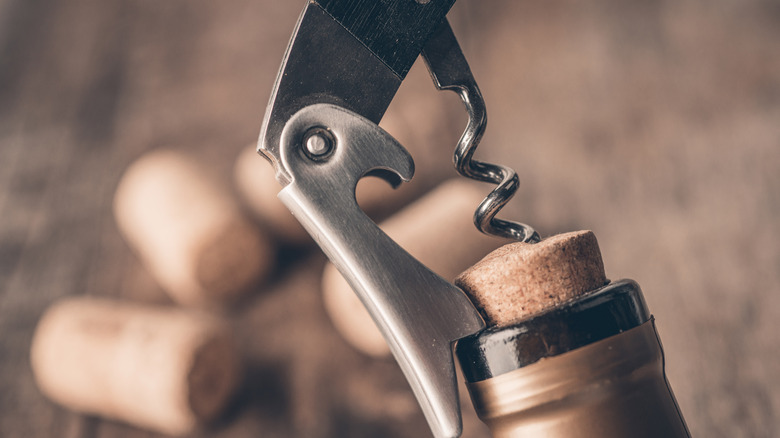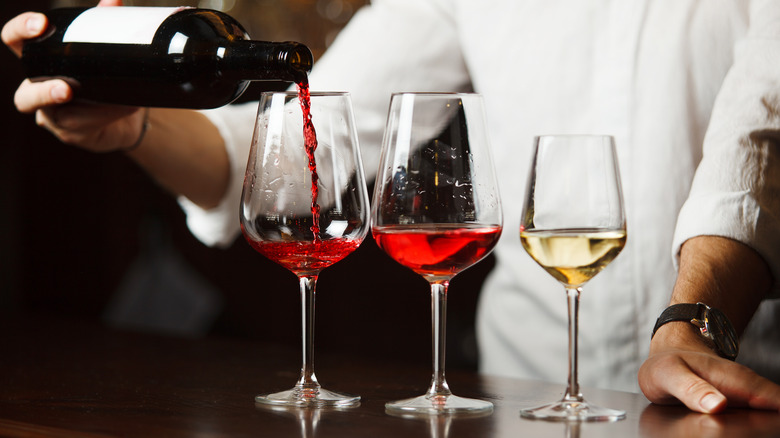How Long Is Wine Safe To Drink?
Once opened, wine can only maintain its freshness for so long until it begins to taste a little funky. Wine stoppers are designed to preserve the beverage for as long as possible after you've popped the top (via The Spruce Eats). But even so, how long is wine safe to keep before it's time to part ways with that leftover bottle?
Once wine meets air, the oxidation process begins. According to Popular Science, once oxygen is introduced to the wine, it fuels the growth of natural bacteria found within the grapes. From the moment of exposure, oxidation begins to alter the wine's taste. The longer an open bottle is left to sit, the smellier it can get. Philip Morace, president of wine teaching organization, Sommelier Society of America, noted to Popular Science that over time, leftover wine can take on the scent of "sweaty socks or wet cardboard."
Ultimately, how long wine is safe to drink after opening will depend on what type of wine it is. Certified Sommelier expert Sarah Tracey writes via Martha Stewart that sparkling wines quickly lose their carbonation once opened and are therefore best consumed the day of. However, popping in a wine stopper may help preserve it until the next day, after which time it should be tossed.
Lifespan differences between red and white wine
White wines will keep for different lengths of time depending on their acidity level (via Martha Stewart). Lower-acid white wines generally have a shelf life of no more than four days, while high-acidity white wines can last up to five days if kept refrigerated. Even better, Tracey suggests pouring any leftover white wine into an airtight mason jar before storing it in the fridge, which can extend its shelf life up to seven days.
When it comes to red wines, keep times will vary based on their tannin content. Tannins are found in the grapes used to make red wine and help protect the beverage from oxidation (via Martha Stewart). A cabernet sauvignon, for example, has higher tannin levels and can be consumed within five days after opening. Red wines with lower tannin levels, such as merlot, should not be kept beyond three days.
Regardless of the type of wine, however, TastingTable stresses the importance of refrigeration after the fact. Even so, if your wine begins to take on a vinegar-like smell or you see visible residue, consider it past its prime.


